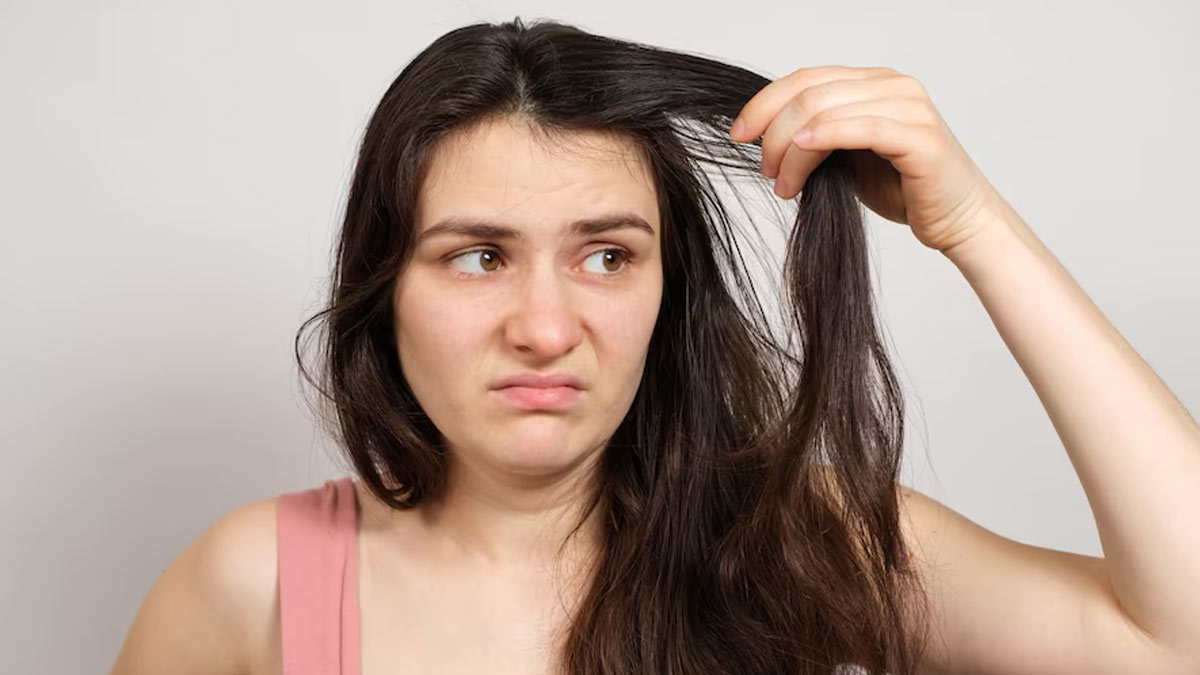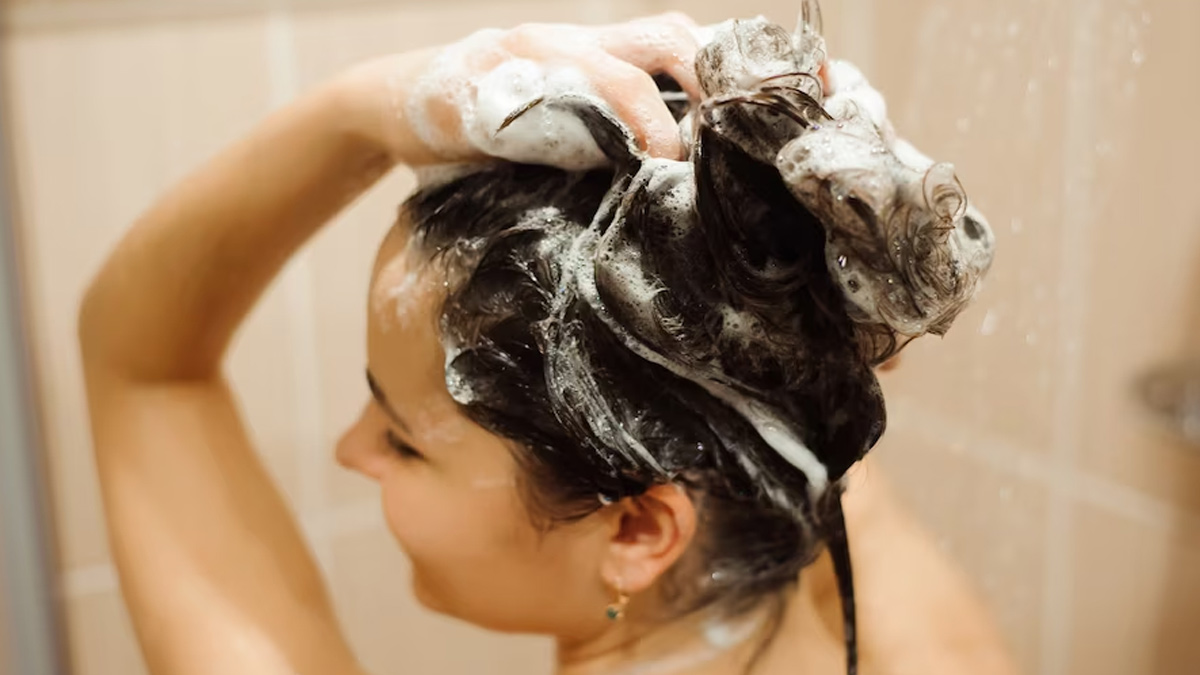
It can be caused by various factors, such as anxiety and hormonal changes. These can trigger the sweat glands to produce more sweat than necessary, leading to discomfort, odour, dandruff, and potential hair damage. It may make you feel uncomfortable and leave you feeling self-conscious and looking for solutions. In this article, we list the causes of the sweaty scalp and ways to manage it.
Table of Content:-
According to a 2016 study, humans contain several million eccrine sweat glands spread across almost the whole body, with the largest density being in the palms, soles, and scalp. As the name suggests, these glands produce sweat.
Causes of Sweaty Scalp

Heat and Humidity
Heat and high humidity are a known cause of having a sweaty scalp. They can trigger sweating throughout the body, including the scalp. When temperatures rise, the body's natural response is to cool down by releasing sweat.
Physical Activity
Engaging in physical exercise or strenuous activities can lead to increased sweating, including on the scalp. The combination of movement and elevated body temperature can cause the scalp to produce more sweat.

Stress and Anxiety
Did you know emotional stress and anxiety can stimulate the body's sweat glands, leading to perspiration on the scalp? This response is part of the body's 'fight or flight' reaction to perceived threats or challenges.
Also Read: Nourish Your Hair: Try These Hot Oil Therapy Concoctions To Combat Hair Fall
Hormonal Changes
Hormonal fluctuations, such as those experienced during puberty, pregnancy, or menopause, can influence sweat production throughout the body, including the scalp.
Medical Conditions
Certain medical conditions, such as hyperhidrosis (excessive sweating), thyroid disorders, and hormonal imbalances, may contribute to a sweaty scalp.
Ways to Get Rid of a Sweaty Scalp

Keep Your Scalp Clean
Maintaining scalp hygiene is crucial to have non-greasy hair. Regularly washing your hair with a gentle shampoo can help remove excess sweat, oil, and debris from the scalp, preventing buildup that can contribute to sweating.
Use Antiperspirant Products
You can even use specialised antiperspirant products that are designed for the scalp to help reduce sweat production. These products typically contain aluminium-based compounds that temporarily block sweat ducts.
Try Natural Remedies
Some natural ingredients, such as witch hazel, apple cider vinegar, and tea tree oil, have astringent properties that can help control excess oil and sweat on the scalp. You can dilute these ingredients with water and apply them to the scalp as a rinse or spray.
Wear Breathable Fabrics
Do not forget to opt for lightweight, breathable hats and head coverings made from natural fibres like cotton or bamboo. These materials allow air circulation and help absorb sweat, reducing scalp moisture.
Also Read: Hair Oils Or Hair Serums: Experts Explain Their Difference And When To Use Them
Manage Stress
Practise stress-reduction techniques, such as deep breathing, meditation, yoga, or mindfulness to help minimise emotional stress and anxiety, which can contribute to sweaty scalp episodes.
Stay Hydrated
Drinking an adequate amount of water throughout the day can help regulate body temperature and prevent excessive sweating. Therefore, aim to drink at least eight glasses of water daily.
Limit Caffeine and Spicy Foods
Caffeine and spicy foods can stimulate the sweat glands and exacerbate sweating. Limiting your intake of these substances may help reduce scalp perspiration.
Consult a Healthcare Professional
If excessive sweating persists despite trying various home remedies, consult a healthcare professional for further evaluation and treatment options. They can assess underlying medical conditions and recommend appropriate interventions, such as prescription-strength antiperspirants or medical procedures.
[Disclaimer: This article contains information for informational purposes only, hence, we advise you to consult your expert if the symptoms persist for a longer time to avoid complications.]
Also watch this video
How we keep this article up to date:
We work with experts and keep a close eye on the latest in health and wellness. Whenever there is a new research or helpful information, we update our articles with accurate and useful advice.
Current Version